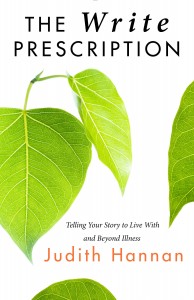OPENING LINES
I do not write in a linear fashion. Motherhood Exaggerated began as a skeleton, but when it came to fleshing it out and clothing it, my process bore more resemblance to the path of a pinball than a train traveling from depot to depot. A right bicep might get carved and then my attention would be pulled to the left foot on which I would place a sock. Fattening up the gut I’d think about adding a pair of pants, but before buttoning them I’d think about time and decide I needed a watch. Applying lip gloss and eyeliner I’d suddenly realize my creation still had a naked right foot. When I finally buttoned the pants, chose a shirt, tucked it in, and strapped on a belt, I’d realize I had forgotten about underwear.
Still, I always knew what the first line of my book was going to be. “Butterflies were scarce on the island of Martha’s Vineyard in the summer of 2000.” Why was this one sentence so important to me? Because it says something central about who I am. Nature is the place where I have always looked for answers, and now it was becoming unreliable.
Lucy Grealy begins her memoir, Autobiography of Face, with the sentence, “My friend Stephen and I used to do pony parties together.” It is the opening line to a prologue that, in terms of the timeline of the book, is actually an epilogue. It isn’t until a few paragraphs in that the reader learns Grealy is self-conscious about a part of her face and that she is intrigued with the way families other than her own live. The reader waits even longer for chemotherapy to be mentioned for the first time, so if you picked up this book not knowing it was a memoir about a girl who had a Ewings sarcoma, you would arrive at this realization only gradually. The “Ker-pow” to Grealy’s jaw comes only after the prologue.
Other writers choose to tell you in the first sentence what awaits you. “About a week and a half after my baby daughter, Lily, was born she began to throw up.” This is Philip Lopate’s opening to his essay, “The Lake of Suffering,” which can be found in his collection, Portrait Inside My Head. Donald Hall begins The Best Day The Worst Day with what reads like a headline, “Jane Kenyon died of leukemia at 7:57 in the morning, April 22, 1995.” An alternative beginning to Motherhood Exaggerated could have been a sentence that appears on the second page: “There were two pieces of clinical evidence that summer that hinted that cancer was developing in Nadia’s body, two pieces of a jigsaw puzzle whose meaning would only be revealed when seen as part of the whole.”
WRITING PROMPT
How do you want to begin your story? Or, what are the ways you could begin because there is no single place to start. Imagine you are telling your story to a friend, a family member, someone who has had an experience similar to your own, a stranger, a doctor. Experiment with different beginnings. The stranger, who doesn’t know your characters, may allow you to speak more openly about them since you may not feel the need to protect them. But the stranger is also an untrustworthy listener which may make you stifle some of your own truths. To a friend, you might open with your deepest fear, while with a family member you may want to proceed more gently. Keep writing opening sentences. Save them. Return to them to see how they feel. Use them as prompts or talk back to them. What’s the opening sentence you would write if the listener is you?
Additional Suggestion
Write out the opening lines from some of your favorite books. Choose one and make it the first sentence of your own story. Now rewrite the first sentence so it is your own.


